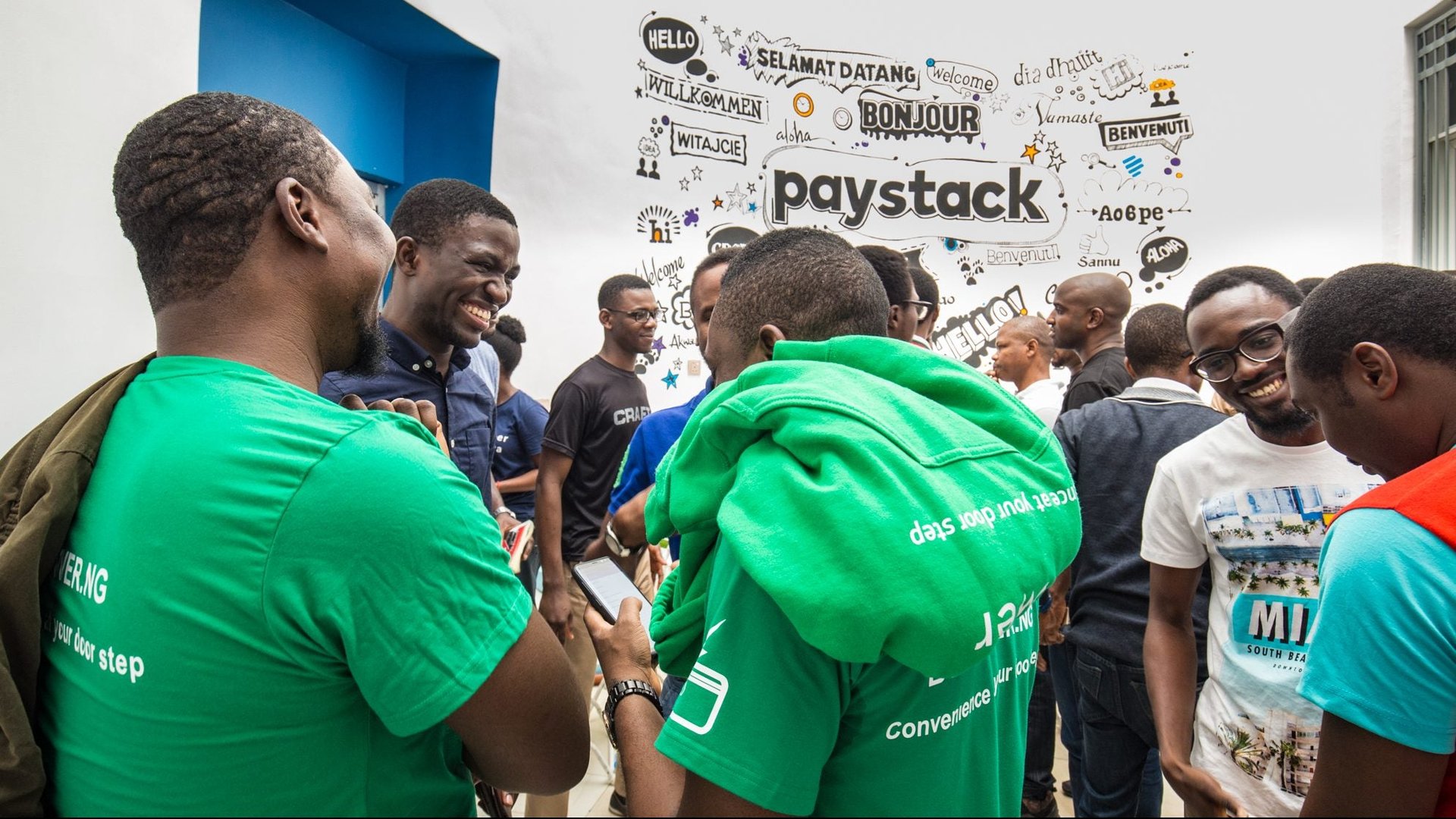What has Paystack done one year after joining Stripe?
Last month, Paystack became the first payment gateway in Africa’s largest economy to become an Apple Pay partner. The integration means that businesses that use Paystack can receive payments from 380 million Apple Pay users in about 60 countries.


Last month, Paystack became the first payment gateway in Africa’s largest economy to become an Apple Pay partner. The integration means that businesses that use Paystack can receive payments from 380 million Apple Pay users in about 60 countries.
It is the most notable product shipped this year by the Nigerian fintech that was, on this day in 2020, announced as a Stripe company.
In the 12 months since that landmark $200 million event, Paystack has relaunched its ecommerce store for sole entrepreneurs and small businesses, updated a feature for subscription-based businesses to better track customer cards that are about to expire, and has become a payment option for vendors using WooCommerce, a plug-in owned by Wordpress.
These are important, if marginal product updates and additions to the company’s already impressive stack. But on a strategic level, Paystack’s first year under Stripe’s ownership has (so far) been defined by its expansion to South Africa, Africa’s most mature market for card payments, where ecommerce grew by 66% in 2020 according to a study supported by Mastercard.
It is the kind of big-picture step that pushes Paystack to truly be a pan-African payments company, living out its founding philosophy as Stripe for Africa. And for Africa, it centers the other major competitive arena for digital financial services outside of mobile money, digital banking, and blockchain-based transactions.
Paystack has retained control
The one thing that has not happened to Paystack since October 2020 is becoming stifled by Stripe’s strict control, according to multiple people who know how the company works, including current employees.
It may be because there was a formal agreement to not interfere for two years, as two sources say. Paystack has acknowledged but is yet to respond to a question about such an agreement.
Speaking last year to The Flip, a podcast on African tech, co-founder and CEO Shola Akinlade said Paystack would continue to execute “independently” with a focus on what its customers wanted. In the same podcast episode, Matt Henderson, Stripe’s head of business for Europe, the Middle East, and Africa, also said it was Stripe’s intention for Paystack to keep moving fast by working independently, not as a division.
Both companies started aligning formally on strategy at least two years before acquisition talks. Stripe led Paystack’s $8 million Series A round in 2018, joined by Visa, and Tencent. Before buying Paystack, Stripe was already its largest investor.
As a result, instead of committing resources chasing continuous fundraising for growth, Paystack channels its energy on three goals: expanding across Africa, building software services, and constantly improving service reliability.
Pursuing growth in South Africa
Paystack’s first step outside Nigeria was to Ghana, though the smaller west African country is more of a fast-growing mobile money than an online card payments domain. But in choosing South Africa as the next bet, Paystack is testing itself in a competitive environment that will show its capacity to differentiate among incumbents in its industry.
Having only launched there in May, there has not been enough time to assess its strength. “South Africa is a more crowded payments market than Nigeria so I suspect things will take time here,” Justin Norman, founder of The Flip, tells Quartz.
“But from some of their recent partnership announcements, it seems like they’re especially focused on categories like ecommerce. And I expect that as ecommerce continues to grow in South Africa, particularly smaller merchants, Paystack will have a role in that growth.”
In South Africa, Paystack is pitting its wits against fellow gateway operators like Peach Payments, which is also an Apple Pay partner, and against Yoco. While the latter’s reputation is more as the ‘Square for Africa’ due to its card machines, it started processing card payments online during the pandemic, and raised $83 million to further such efforts in July.
As one would expect, Paystack is unfazed by competition. Online percentage of total retail in South Africa is still at 4%. “The more innovative plays there are, the faster it’ll be to realize our goal of having an integrated African market,” Abdulrahman Jogbojogbo, one of its product marketers, told TechCrunch. In addition to Apple Pay, support for Shopify is Paystack’s other appeal to South African merchants.
But even that is offered by Peach Payments, PayFast, and a few processors in the country.
For Ububele Kopo, a South Africa-based technology analyst who worked in international expansion at Yoco, Paystack would “probably need to be more aggressive in terms of marketing in the coming months.” But he expects its developer-friendly product approach to help it win over customers, and the best talent in South Africa. Sources say the company has ramped up hiring recently, for engineering teams and other units.
Offline, and agent-banking plays for Paystack?
Stripe’s famed mission is to “increase the GDP of the internet.” But in Africa, payments drift between online and offline mediums, the ultimate aim being to serve customers where they are.
It is believed that Paystack has explored what it could do for users that are unbanked, or more generally still offline. Akinlade alluded to that last month in response to a question during a conference by TechCabal. But Norman, who is also an investor in startups through Rally Cap Ventures, a startup investment firm, doesn’t think the company has to do it all:
“While offline agency banking is a huge need and opportunity, as is bringing offline merchants online, I think African markets can benefit from more specialists, especially as the ecosystem continues to evolve.”

Instead, Paystack should target perfect reliability in its current strengths. That means pushing beyond a 99% success rate, since that produces 1 million failures for 100 million transactions – a return that should not be good enough for a company aiming to increase the internet’s GDP.
“Previously, it may have been the case that payments companies would need to move up or down the value chain, but I suspect that the Stripe acquisition actually affords them the ability to stay narrowly focused,” Norman says.
Sign up to the Quartz Africa Weekly Brief here for news and analysis on African business, tech, and innovation in your inbox.